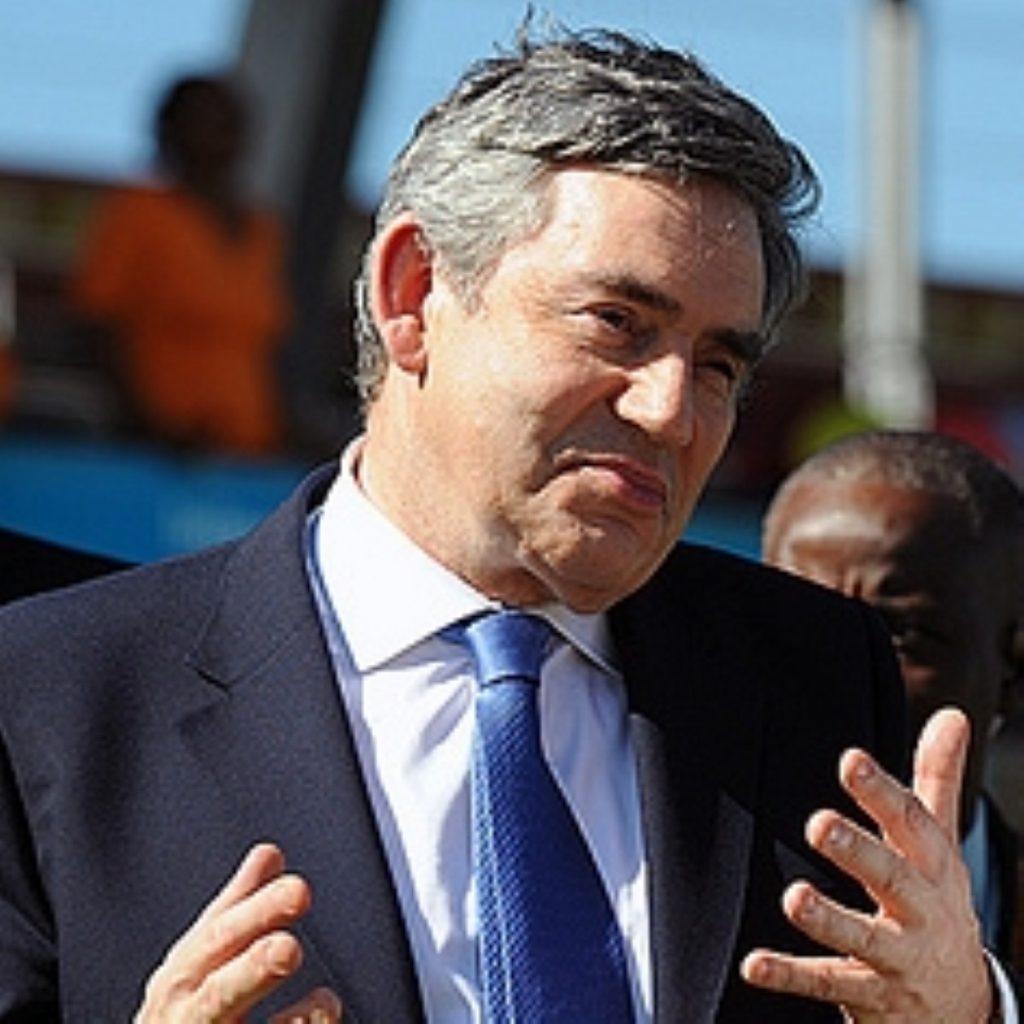PMQs sketch: Brown clocks up another win
Another win for Gordon Brown. If he keeps this up we’ll all have to reconsider the election.
By Ian Dunt
What has he been taking? Gordon Brown pulled some rather remarkable little tricks out the bag during this week’s PMQs, securing another surprise victory over David Cameron.
It would be less remarkable if Cameron was on poor form, but he wasn’t. A rebuke from John Bercow to Labour backbenchers for their (considerable) noise saw Cameron tell the Speaker that “it’s not just backbenchers. the children’s secretary is up to his old tricks again”. He then reminded Ed Balls that his constituency is an ultra-marginal, and that perhaps he should spend more time there, except that the more people he meets, the greater the likelihood of a Tory victory. He managed a similar frivolity when Bercow reproached Ben Bradshaw for getting overexcited. “That’s another one who should be defending his marginal constituency,” Cameron barked. Behind him, rows of Tory backbenchers waved the culture secretary bye-bye with gleeful smiles on their faces.


But it wasn’t enough. His attacks on the economy – perfectly justified – were flung aside by the prime minister. Brown simply battered him. “The more he talks the less he actually says,” the PM said, to roars of approval. He then set to work dismantling the Tories’ commitment to inheritance tax cuts. I was of the persuasion several months ago that George Osborne should ditch this. It would have been a remarkable move, showing the party to be serious and responsible, while their spin doctors went to work convincing journalists of how brave and public-service-minded it was to let go of a prized policy because of their commitment to tackling the deficit. They didn’t go down this path, and today highlights how a policy which stopped an early general election in its tracks may still turn into the Conservative’s Achilles’ heel.
Inheritance tax, like so many other Conservative policies, was “dreamed up on the field at Eton”, the PM said. Labour appeared to orgasm en masse at the mere mention of the place. Huge noise filled the chamber, which Bercow was quite unable to extinguish. I have no idea how well it plays with the country at large, but it does something very profound and sexual to Labour’s backbenches. My guess is that more voters are bothered about Cameron’s background than the ‘class doesn’t matter anymore’ brigade would suggest, but less than Labour hopes they are.
Poor old Nick Clegg didn’t get a look in either. After two weeks of accomplished interventions he lacked any bite today, and appeared like a consensual politician forced to play a game he detests – which, of course, is exactly what he is. It was difficult to hear him above the din and the nature of the din was the most offensive part of all. It wasn’t, as it once was, constituted of dozens of MPs abusing him, but instead of general chit-chat. That’s far more damning and upsetting. They can’t even be bothered to listen anymore. Once he told the prime minister how important he thought Barack Obama’s speech was last night, Brown replied by telling him mockingly that “President Obama will be grateful for his endorsement.” Labour, Tories and, it must be said, much of the press gallery enjoyed this intensely.
But it was Brown’s second response to the Lib Dem leader which truly stung. After discussing the need to bring Russia and other regional players into the attempt to find a solution to the Afghan problem, Brown began his reply with: “I’m grateful to him.” That’s par for the course, especially when discussing Afghanistan, but Brown’s genuine tone meant Clegg had been well and truly neutered here.
So that’s the party politics out the way. What about the proper politics? The kind where ideas and honesty matter, together with coherence and ethics and all sorts of other old fashioned ideas. Well, these principles did not have a good day today. They rarely do in this place. Brown mocked Cameron for not having any policies, and then attacked his policies. The Commons is so used to double-think now that this logically inconsistent manoeuvre barely registers.
Cameron attacked Brown over the recession, arguing that we’re the only country in the G20 not to have emerged from it yet (Brown claimed Spain hadn’t either). But the Tory leader simply cannot get over that honest part of the voter’s brain, which looks at his attacks, imagines whether things would have been better under a Tory government, and then decides they wouldn’t have been.
And then, finally, it was Brown who pulled the lowest trick. His claim that Cameron’s questions on the economy were “talking down Britain” – later repeated by a numbing Labour backbencher – were abysmally dirty. To question the leader of the opposition’s patriotism for being impertinent enough to ask questions is pretty low. To create a political environment in which challenging someone’s patriotism – as is common in America – is considered appropriate discourse is even lower. Brown’s got a track record on this – he once meandered close to the line when facing questions on equipment for troops in Afghanistan. It is the talk of the dictator, of the man who will stop at nothing to escape questioning. The sad thing is, no one really notices.

